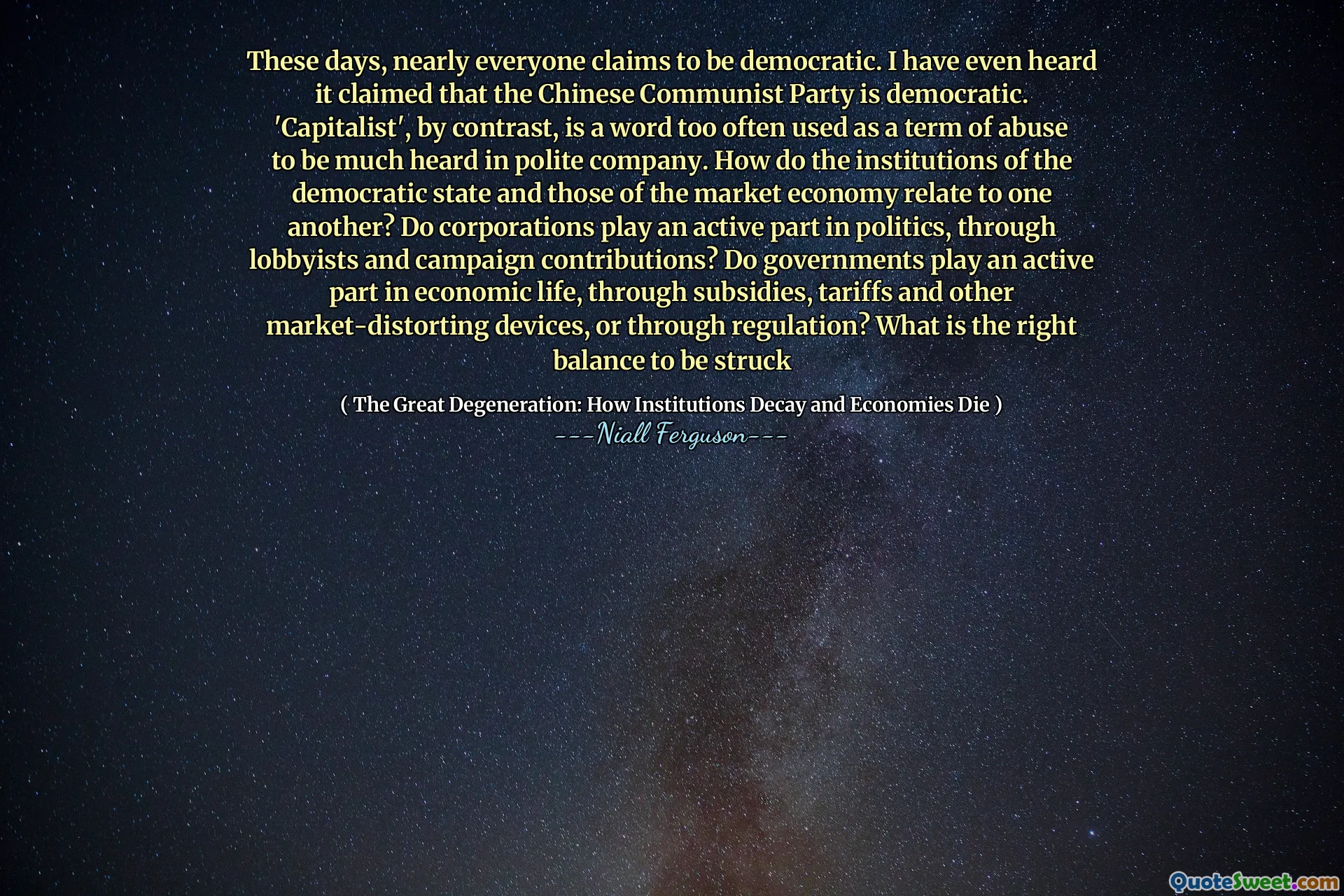
These days, nearly everyone claims to be democratic. I have even heard it claimed that the Chinese Communist Party is democratic. 'Capitalist', by contrast, is a word too often used as a term of abuse to be much heard in polite company. How do the institutions of the democratic state and those of the market economy relate to one another? Do corporations play an active part in politics, through lobbyists and campaign contributions? Do governments play an active part in economic life, through subsidies, tariffs and other market-distorting devices, or through regulation? What is the right balance to be struck
In contemporary discourse, claims of democratic principles are pervasive, with even the Chinese Communist Party asserting its democratic nature. In contrast, references to capitalism often carry negative connotations and are less frequently endorsed in respectful discussions. This raises questions about the interplay between democratic institutions and market economies, considering how these systems affect one another.
Furthermore, the influence of corporations in politics is significant, as they frequently engage in lobbying and contribute to campaigns. Conversely, governments impact the economy through various means, including subsidies and regulations that may distort the market. This prompts a critical examination of the appropriate balance between state intervention and market freedom, as discussed in Niall Ferguson's "The Great Degeneration."











